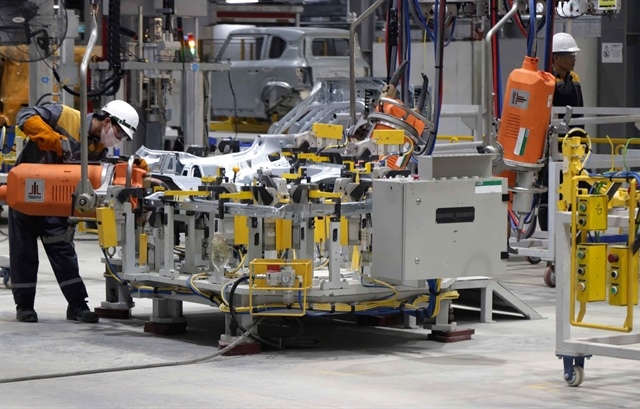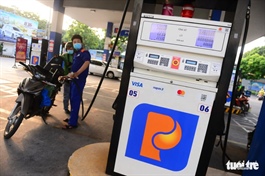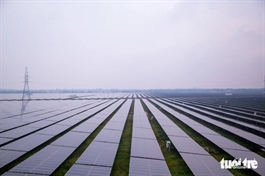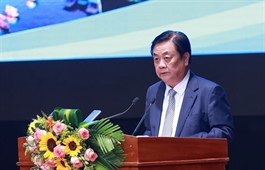Bắc Ninh aims to integrate into regional semiconductor ecosystem
Bắc Ninh aims to integrate into regional semiconductor ecosystem
With a business-friendly approach and an open-door policy, the northern province of Bắc Ninh has emerged as a key destination for major players in the electronics and semiconductor industry.
|
|
Workers at Samsung Electronics Vietnam in Bắc Ninh. — VNA/VNS Photo
This presents both an opportunity and momentum for Bắc Ninh Province to gradually integrate into the domestic and regional semiconductor ecosystems.
So far, Bắc Ninh has successfully attracted prominent names like Amkor Technology and Micro Commercial Components, laying the initial groundwork for the development of a semiconductor ecosystem.
As outlined in its master plan to 2050, Bắc Ninh is placing a strong emphasis on the in-depth development of its industrial sector. The objective by 2030 is to prioritise the growth of specific industries, such as electronic equipment, components and parts for aerospace industry, high-tech equipment and pharmaceuticals, and medical industrial equipment. By 2050, it aims to evolve into a high-tech innovation, research and design centre in Southeast Asia.
To such end, the province will continue leveraging its existing advantages and sustain the electronics sector as the primary driving force of industrial development. Special attention will be paid to high-value segments, specifically in the production of high-tech items such as smartphones and wearable devices.
Human resources development takes the centre stage, with a 50 per cent tuition fee support for students majoring in high-tech disciplines.
With about 30 universities, colleges, vocational schools and 40 high schools, coupled with its close proximity to major universities in Hà Nội, Bắc Ninh is well-positioned to attract a substantial number of quality workers, experts said.
Permanent Vice Chairman of the provincial People's Committee Vương Quốc Tuấn said in the semiconductor industry, Bắc Ninh boasts the largest-scale industrial infrastructure in the North, positioning itself to become a hub of innovative research and technology transfer. The province considers this an opportunity and is carefully preparing to attract foreign capital effectively. In this way, it will draw attention to projects that play a crucial role in the global semiconductor supply chain.
At present, the province is hastening the construction of a concentrated information technology area covering over 260ha, employing about 20,000 people. It is developing infrastructure to position itself as a hub of electronics, components, and semiconductor manufacturing in the northern midland and mountainous region, as well as the greater Hà Nội Capital Region.
With clear-cut strategies and objectives, Bắc Ninh is recognised by many experts as gradually expanding its supply and production chains, aiming to become the focal point of Việt Nam's semiconductor industry and a crucial link in the global value chain.



























